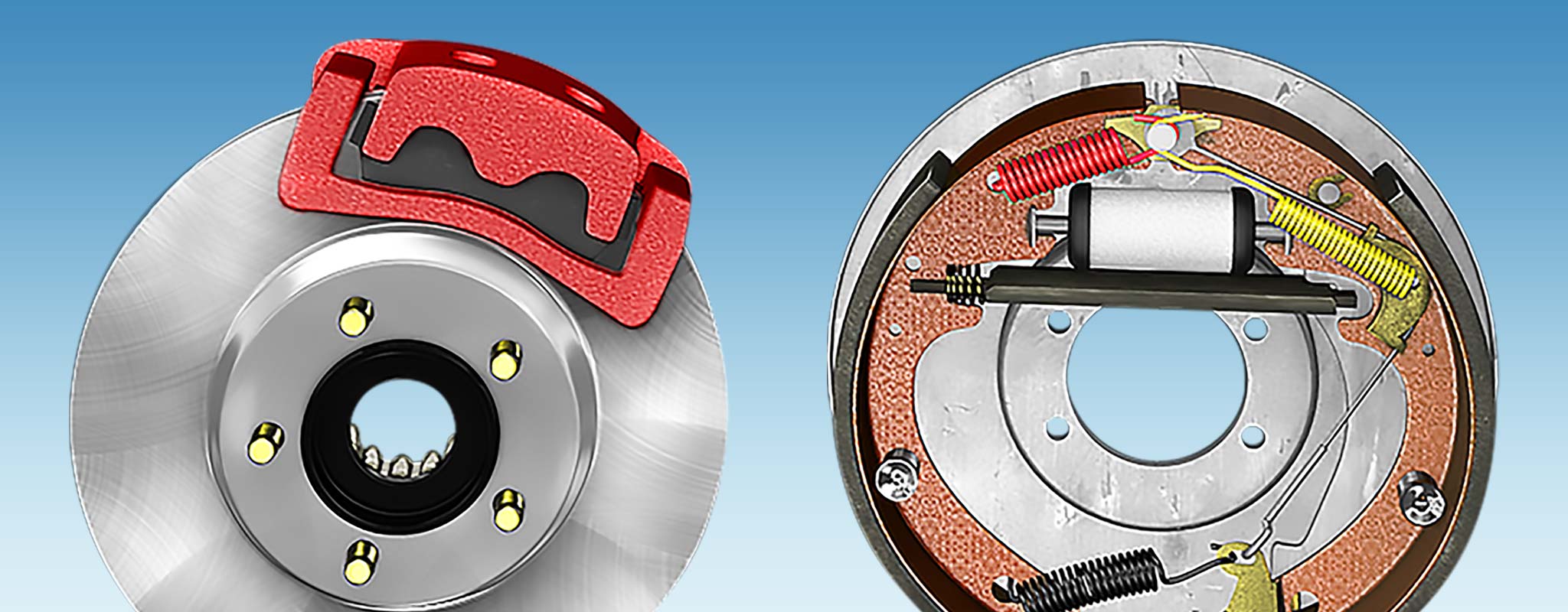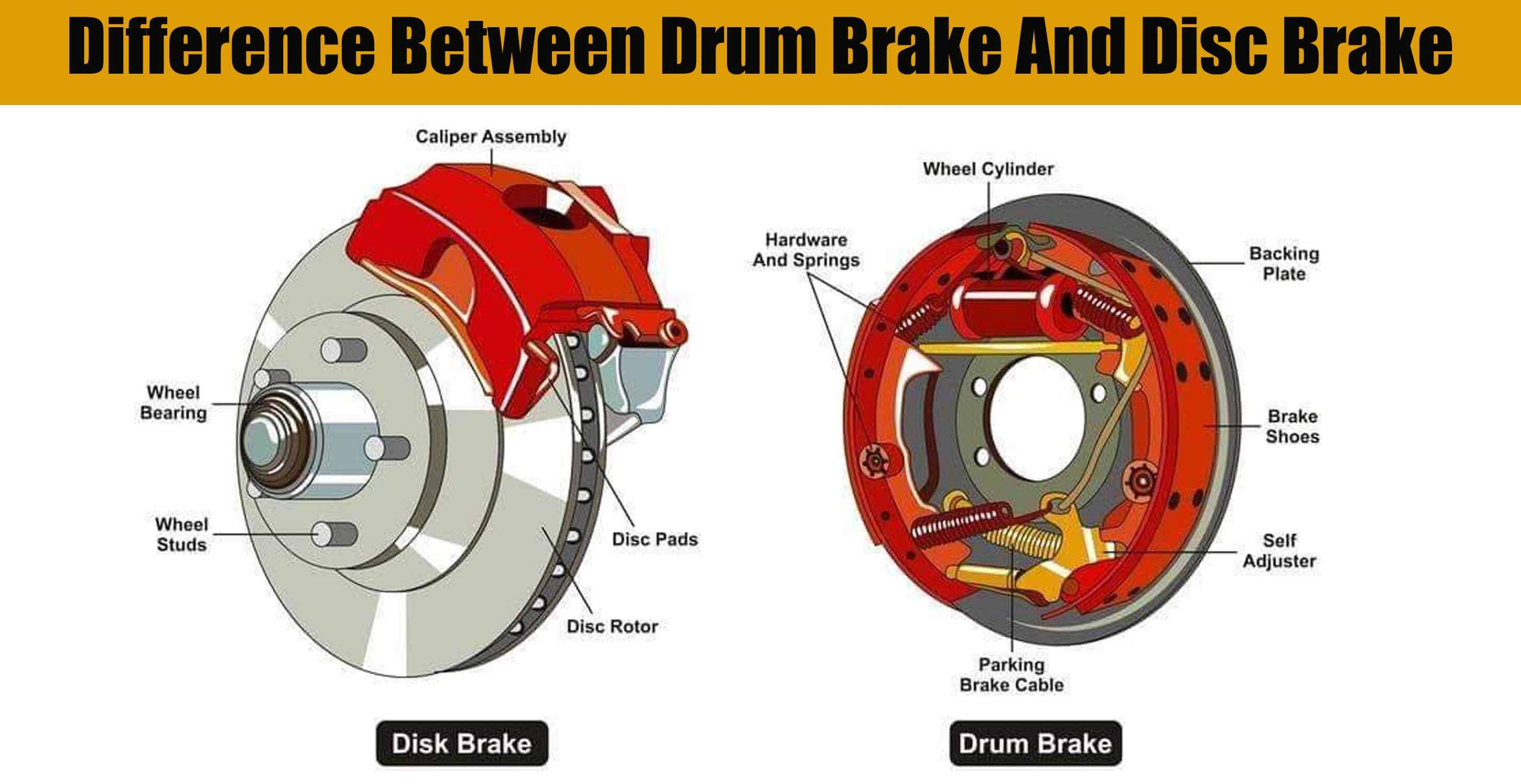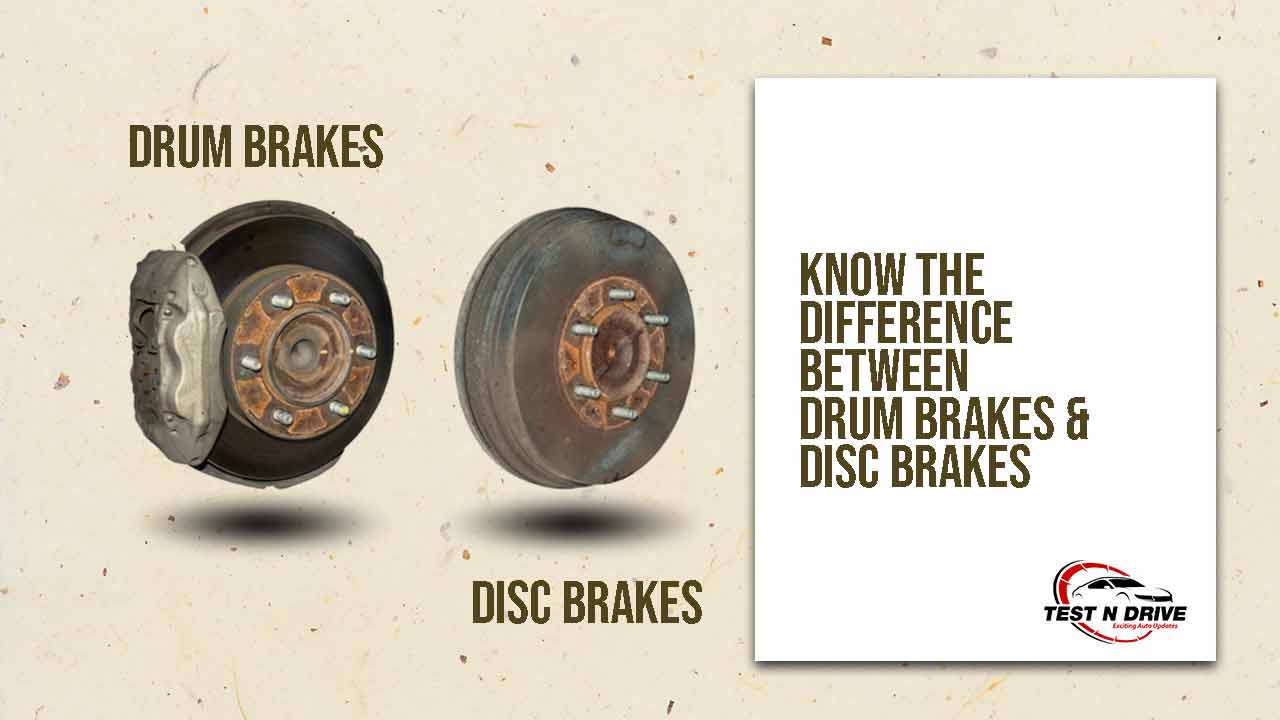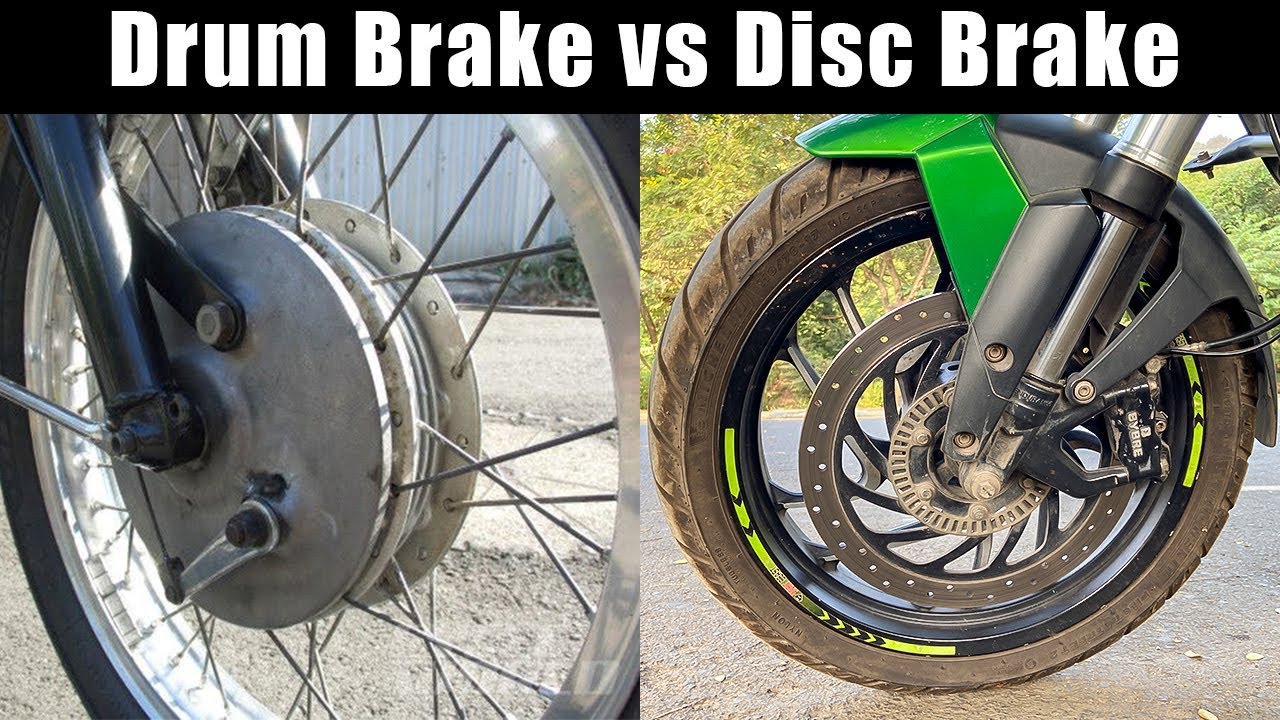Favorite Info About What Is Better, Disc Or Drum Brakes

Differences Between Drum Brake And Disc Brake. YouTube
Disc vs. Drum Brakes
1. Understanding the Basics
Okay, let's talk brakes. You press the pedal, and your car stops. Simple, right? But beneath the surface lies a fascinating bit of engineering, and at the heart of it are two main contenders: disc brakes and drum brakes. The debate about "what is better, disc or drum brakes" has been raging for, well, practically as long as cars have had brakes! So, let's dive in and see what all the fuss is about.
Think of it this way: drum brakes are the old-school veterans, the ones that have been around the block a few times. They work using brake shoes that press outward against the inside of a rotating drum. Disc brakes, on the other hand, are the sleek, modern alternatives. They use calipers to squeeze brake pads against a rotating disc, much like squeezing a bicycle brake lever.
The main difference, aside from the mechanics, lies in their performance characteristics. Drum brakes were initially cheaper to manufacture. Disc brake designs are more complex and often cost more. Over time the superior performance of disc brakes has become the focus for most manufacturers.
Essentially, when you push your brake pedal, pressure is applied, and these components get squeezed or pushed to slow your car down. Now, let's get into why one might be preferable to the other.

Complete Guide To Disc Brakes And Drum Les Schwab
Stopping Power
2. Why Discs Offer Superior Performance
When it comes to pure stopping power, the consensus leans heavily towards disc brakes. And there's a good reason for that. Disc brakes offer better heat dissipation. Because the rotor is exposed to the air, the heat is removed quickly. This is crucial, especially during hard braking or repeated stops. Drum brakes, being enclosed, tend to trap heat, which can lead to brake fade (a reduction in stopping power).
Have you ever noticed how race cars always use disc brakes? That's because they need consistent and reliable braking performance under extreme conditions. While your daily commute might not involve hurtling around corners at 150 mph, the principle remains the same: better heat management equals better stopping.
Another advantage of disc brakes is their self-cleaning ability. The open design allows debris, water, and mud to be easily flung away. Drum brakes, on the other hand, can trap these contaminants, leading to reduced friction and less effective braking. A bit like trying to stop a skateboard with a layer of grime on the wheels!
So, If the question is simply, "what is better, disc or drum brakes" in terms of stopping power, disc brakes emerge as the clear winner. Their superior heat dissipation and self-cleaning properties provide a more consistent and reliable braking experience.

Cost Considerations
3. Examining the Financial Aspects
While disc brakes generally outperform drum brakes, there's one area where drum brakes still hold some sway: cost. Drum brakes are typically cheaper to manufacture and maintain. This is why you might still find them on the rear wheels of some less expensive cars or older models.
The lower cost of drum brakes translates to savings for both the manufacturer and, potentially, the consumer. Replacement parts are generally less expensive, and the simpler design means less labor cost to repair or replace. However, it's important to weigh this cost saving against the performance benefits of disc brakes.
Consider it this way: you might save a few bucks upfront with drum brakes, but you could potentially end up spending more in the long run if you need to replace them more frequently or if they contribute to an accident due to reduced stopping power. It's all about striking a balance between budget and performance.
However, the price difference between disc and drum brakes has narrowed over time. As manufacturing processes become more efficient, the cost of producing disc brakes has decreased. This makes them a more attractive option, even for budget-conscious buyers. Essentially, cost is becoming less of a deciding factor as disc brake prices become competitive.

Maintenance and Longevity
4. Comparing Repair and Lifespan
When it comes to maintenance, the picture gets a little more complicated. Drum brakes, with their enclosed design, are less susceptible to corrosion and road debris. This means they might last longer between servicing. However, when they do need attention, the repair process can be more involved. Getting inside that drum can sometimes feel like trying to solve a Rubik's Cube in the dark!
Disc brakes, on the other hand, are easier to inspect and service. The open design allows for quick visual checks of the brake pads and rotors. Replacing brake pads on a disc brake system is generally a straightforward task. However, the exposed components are more vulnerable to corrosion and damage from road hazards.
The lifespan of both disc and drum brakes depends heavily on driving habits. Aggressive braking, heavy loads, and poor road conditions can all accelerate wear and tear. Regular maintenance, including brake fluid flushes and inspections, is crucial for maximizing the lifespan of either type of brake.
Ultimately, choosing between disc and drum brakes based on maintenance and longevity depends on your priorities. If you're looking for something that requires minimal attention and are willing to sacrifice some performance, drum brakes might be a viable option. But if you prioritize ease of service and are willing to invest in regular maintenance, disc brakes are a better choice.

The Verdict
5. Summarizing the Key Differences and Benefits
So, after all this talk, where do we land? Well, the answer to "what is better, disc or drum brakes" isn't quite as black and white as you might think. While disc brakes offer superior stopping power, heat dissipation, and ease of maintenance, drum brakes still have a place in certain applications due to their lower cost. In most cases, if you had to choose just one type of braking system for your vehicle, disc brakes are the way to go. Their overall performance benefits outweigh the slightly higher cost.
The automotive industry is moving steadily towards disc brakes on all four wheels for most vehicles. This trend is driven by increasing safety standards, consumer demand for better performance, and the decreasing cost difference between the two systems. Even budget-friendly cars are increasingly equipped with disc brakes, at least on the front wheels.
Ultimately, the best braking system for you will depend on your specific needs, budget, and driving habits. Consider the type of driving you do most often, the weight of your vehicle, and your personal preferences when making your decision. The most important thing is to ensure that your brakes are in good working order and that you're driving safely.
Don't underestimate the importance of good tires! They are the only things touching the road, and your braking system relies on them to grip. A good set of tires and properly functioning brakes are a match made in automotive heaven. Remember to have your brakes checked regularly by a qualified mechanic. Safety first!

Choosing Between Drum Brakes And Disc Which Is Right For Your
FAQ
6. Answering Your Burning Questions
Still have some questions about disc and drum brakes? Here are a few frequently asked questions to help clear things up.
7. Q
A: Yes, it is possible to convert drum brakes to disc brakes. However, it's not a simple bolt-on procedure. It typically involves replacing the entire braking system, including the rotors, calipers, brake lines, and potentially even the master cylinder. It's best to consult with a qualified mechanic to determine if this conversion is feasible and cost-effective for your vehicle.
8. Q
A: Generally, yes. Disc brakes offer better control and modulation in slippery conditions compared to drum brakes. The superior heat dissipation of disc brakes helps prevent brake fade, which can be especially dangerous on snow and ice. However, it's essential to use proper winter tires and drive cautiously regardless of the type of brakes you have.
9. Q
A: The lifespan of brake pads depends on several factors, including driving habits, road conditions, and the type of brake pads used. As a general guideline, you should inspect your brake pads every 6 months or 6,000 miles. Replace them when they are worn down to the manufacturer's recommended minimum thickness. Listen for squealing or grinding noises, which can indicate worn brake pads.